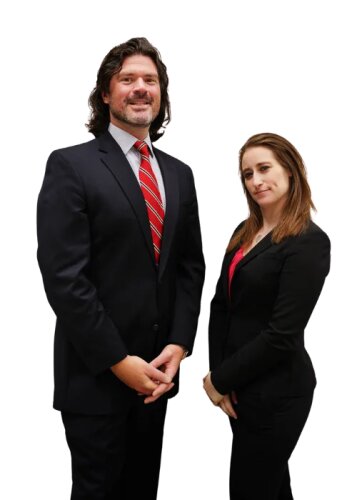Best Golden Visa Lawyers in New York City
Share your needs with us, get contacted by law firms.
Free. Takes 2 min.
List of the best lawyers in New York City, United States
1. About Golden Visa Law in New York City, United States
The term Golden Visa in New York City most often refers to the United States immigrant investor pathway, commonly known as the EB-5 program. There is no separate New York City law titled “Golden Visa”; eligibility and rules are federal and apply across the United States, including NYC. In practice, many New York residents pursue EB-5 through direct investments or regional centers to obtain permanent residence for themselves and their families.
Under the EB-5 framework, an investor must invest in a qualifying commercial enterprise and create or preserve jobs for U.S. workers. The program provides a route from temporary status to lawful permanent residency, with conditional permanent residence granted after initial approval in most cases. The process involves petitioning federal agencies, documenting funds, and meeting stringent job creation and investment requirements.
NYC-specific considerations include the city’s high cost of living, real estate market dynamics, and local financial services norms. Applicants often rely on New York-based law firms, accountants, and financial professionals who understand both federal immigration rules and regional investment landscapes. The program’s practical steps, timelines, and due diligence processes are shaped by federal guidelines and by investor protections established over time.
According to the U.S. Citizenship and Immigration Services (USCIS), the EB-5 program offers a pathway to lawful permanent residence for foreign investors who invest in a new commercial enterprise and create or preserve jobs in the United States. Source: USCIS EB-5 program page.
USCIS notes that the EB-5 program is subject to federal regulations and periodic reforms, including changes to investment thresholds, regional center provisions, and compliance rules. Source: USCIS EB-5 program page and related regulatory materials.
2. Why You May Need a Lawyer
Investors in New York City often find a lawyer essential at multiple stages of the EB-5 process. A qualified solicitor can help ensure compliance with federal requirements while navigating NYC’s financial and regulatory environment.
- Scenario: You plan to invest in a NYC-area project and must prove the lawful source of funds. An attorney can organize documentation, trace funds, and address anti-money-laundering concerns to avoid delays.
- Scenario: You want to decide between direct investment and a regional center model. A lawyer can assess job creation methods, project risk, and governance structures specific to New York markets.
- Scenario: USCIS issues a Request for Evidence (RFE) about job creation projections or source-of-funds documentation. A legal counsel can respond with precise, organized, and jurisdiction-specific evidence packages.
- Scenario: You need to file I-526, and you require project due diligence and a robust business plan that aligns with federal standards and local market realities in NYC.
- Scenario: After approval, you must maintain conditional residence and later remove the conditions. An attorney can manage I-829 filings, deadlines, and supporting evidence in a way that minimizes risk of denial.
- Scenario: Your family structure requires derivative beneficiaries (spouse and children). A lawyer can coordinate filings to preserve family unity and timelines for all dependents.
Hiring a New York City immigration attorney or solicitor with EB-5 experience can reduce risk, align with local financial institutions, and help coordinate cross-border estate and tax considerations. An experienced practitioner provides schedules for document gathering, project closing, and potential follow-up steps after permanent residency is granted.
3. Local Laws Overview
In the Golden Visa context, the key rules are federal, but there are jurisdiction-specific concepts that NYC applicants should understand. Here are three important legal touchpoints and what they mean in practice for New York-based investors.
Immigration and Nationality Act (INA) Section 203(b)(5) - EB-5 Immigrant Investor Program
The INA governs the basic eligibility framework for immigrant investor petitions and the allocation of visas for the EB-5 category. Investors must meet investment and job-creation requirements for a qualifying enterprise. In NYC, applicants typically prepare a comprehensive investment plan tied to a project or business that can be located in or near New York City or the tri-state area.
8 CFR Part 204 - Immigrant Petitions by Aliens for Immigrant Investor Programs
This regulatory provision sets out how an immigrant investor petition is prepared and adjudicated. It covers I-526 petition requirements, evidence standards, and anticipated timelines. For New York City cases, local professional services often focus on aligning the business plan with the job-creation methodology that USCIS expects in an urban economy.
EB-5 Reform and Integrity Act of 2022 (as implemented in 2022-2023) - permanent regional centers and enhanced compliance
That reform introduced structural changes to the regional center program and investor oversight. In practice, NYC applicants may experience new compliance measures and reporting requirements. The act aims to strengthen program integrity and ensure proper tracking of investment use and job creation.
For ongoing reference, the official sources below provide the core framework and current guidance on EB-5 and related processes:
Source: U.S. Citizenship and Immigration Services (USCIS) - EB-5 Immigrant Investor Program. https://www.uscis.gov/eb-5
Source: U.S. Department of State - Immigrant Investor Program guidance (visa processing and policy). https://travel.state.gov/content/travel/en/us-visas/immigrate/investor-visa/eb-5-visa.html
8 CFR Part 204 - Immigrant petitions by aliens for immigrant investor programs (official regulatory text).
4. Frequently Asked Questions
What is the EB-5 Immigrant Investor Program?
The EB-5 program offers a path to lawful permanent residence for qualifying foreign investors. It requires a qualifying investment and job creation in the United States.
How do I qualify for EB-5 in New York City?
You must invest in a project that meets federal criteria and demonstrate that you will create or preserve jobs. Documentation includes source of funds, business plans, and project projections relevant to New York markets.
Do I need to invest in a regional center or can I invest directly?
You can choose between a direct investment and a regional center investment. Regional centers simplify job-creation metrics and allow for some indirect job counting, which can affect timelines and risk.
How much money is required to start EB-5?
Investment amounts are set by federal guidance and can vary with changes to policy. In practice, applicants must meet a minimum threshold and select a qualifying project that meets job-creation requirements.
What documents prove my source of funds?
You need credible, traceable documentation showing lawful acquisition of funds. This often includes bank records, tax documents, and business sale agreements, all tied to the NYC context.
What is the I-526 petition?
The I-526 petition is the initial immigrant investor filing with USCIS. It establishes eligibility based on investment and job-creation plans.
How long does the I-526 process take?
What is conditional permanent residence?
Successful EB-5 petitions often grant conditional permanent residence for two years. You must meet requirements to remove the conditions before the second anniversary.
How do I remove conditions on my residence?
Filing the I-829 petition within the specified window is required. This step demonstrates continued investment, job creation, and compliance with program rules.
What happens after I obtain permanent residence?
You can pursue a path to naturalization, subject to residency requirements and other eligibility criteria. A lawyer can map a tailored timeline based on your NYC residency and family status.
Is it possible to hire a New York City attorney for EB-5?
Yes. An NYC-based attorney can coordinate filings, audits, and responses specifically tailored to urban markets and local regulatory nuances.
Should I consider other visa options in addition to EB-5?
Alternative paths exist, such as treaty-based investors or other employment-based routes. A practitioner can evaluate which route aligns with your nationality, business plan, and timing.
5. Additional Resources
- U.S. Citizenship and Immigration Services (USCIS) - EB-5 Immigrant Investor Program - Official government overview, eligibility criteria, and filing guidance. https://www.uscis.gov/eb-5
- U.S. Department of State - Immigrant Investor Program (EB-5) Guidance - Visa processing information for EB-5 investors and family members. https://travel.state.gov/content/travel/en/us-visas/immigrate/investor-visa/eb-5-visa.html
- CODE OF FEDERAL REGULATIONS - 8 CFR Part 204 - Official regulatory text governing immigrant petitions by aliens for immigrant investor programs. https://www.ecfr.gov/current/title-8/chapter-I/subchapter-F/part-204
6. Next Steps
- Clarify your investment path in NYC by deciding between direct investment and a regional center project. This decision shapes document requirements and job-count methods. Timeline: 1 week for initial choice after intake.
- Consult a New York City immigration attorney with EB-5 experience. Schedule an initial assessment to review eligibility, timelines, and risks. Timeline: 1-2 weeks to arrange a qualified consultation.
- Begin assembling your source-of-funds documentation and financial history. An attorney can provide a checklist tailored to your NYC circumstances. Timeline: 2-6 weeks to complete initial collection.
- Perform due diligence on the project or regional center, including financials, job projections, and compliance history. Timeline: 4-8 weeks for a thorough review.
- Prepare and file the I-526 petition with USCIS, guided by your attorney. Prepare supporting materials that demonstrate investment legality and job-creation plans. Timeline: 6-18 months typical, depending on USCIS workload.
- If approved, obtain conditional permanent residence and plan for relocation or use of NYC-based living arrangements as needed. Timeline: immediate upon I-526 approval and visa processing.
Lawzana helps you find the best lawyers and law firms in New York City through a curated and pre-screened list of qualified legal professionals. Our platform offers rankings and detailed profiles of attorneys and law firms, allowing you to compare based on practice areas, including Golden Visa, experience, and client feedback.
Each profile includes a description of the firm's areas of practice, client reviews, team members and partners, year of establishment, spoken languages, office locations, contact information, social media presence, and any published articles or resources. Most firms on our platform speak English and are experienced in both local and international legal matters.
Get a quote from top-rated law firms in New York City, United States — quickly, securely, and without unnecessary hassle.
Disclaimer:
The information provided on this page is for general informational purposes only and does not constitute legal advice. While we strive to ensure the accuracy and relevance of the content, legal information may change over time, and interpretations of the law can vary. You should always consult with a qualified legal professional for advice specific to your situation.
We disclaim all liability for actions taken or not taken based on the content of this page. If you believe any information is incorrect or outdated, please contact us, and we will review and update it where appropriate.











